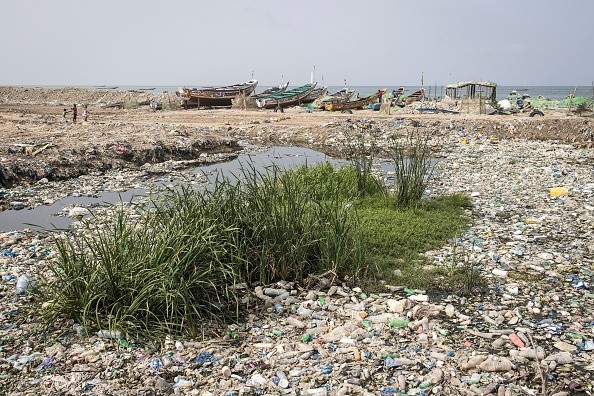Researchers have developed a new idea for biodegradable materials to replace plastics globally. The said material is said to be biodegradable in seawater. The plastic solution can change the massive use and consumption of plastics.
The massive and unstoppable use of plastics worldwide has caused concerns for environmentalists and researchers. Plastics have been responsible for damaging animal habitats and pose human health risks.
Furthermore, plastics can clog rivers, oceans, and main drainage systems, leading to small to catastrophic flooding.
Plastic pollution

According to National Geographic, plastic production increased from 2.3 million tons in 1950 to 448 million tons by 2015, which could double in 2050.
The same report revealed that about 8 million plastic waste goes into the oceans yearly, affecting the marine ecosystem and harming wildlife.
However, a team of scientists stepped into the challenge of addressing the massive environmental threat of plastic pollution.
Biologist Stephen Mayfield explained that the improper disposal of plastics leads to breaking down into microplastics in the ocean, which is considered an environmental problem.
Mayfield added that it is possible to make plastic products that can degrade in the ocean. While plastics must not be in the sea, he said it could become food for microorganisms.
Mayfield is also a professor in the School of Biological Sciences and director of the California Center for Algae Biotechnology.
Science of the Total Environment published the research findings and can also be read at ScienceDaily.
Biodegradable material in seawater
According to the study, scientists found that polyurethane foam could biodegrade in seawater. It noted that the researchers determined the microorganisms in the six marine areas in San Diego which consume and break down the said material.
What is alarming with the massive plastics floating or submerged in the ocean is how it affects the marine ecosystems, noting that plastic materials break into microplastics polluting the animals' habitats.
Based on the study, researchers tested polyurethane materials. The researchers discovered marine organisms colonize on the e polyurethane foam. Then, it does biodegrade the polyurethane foam material back to its starting chemicals.
The result added that the microorganisms consumed it as nutrients. Additionally, the study revealed that microorganisms refer to bacteria and fungi present in the ocean environment.
Mayfield said that the result of many organisms colonizing the said foams in the ocean, which Mayfield called a microbial reef.
The same report revealed that the research was conducted and tested with field experts in marine Science, biology, and polymer and synthetic chemistry.
In the process, the team exposed the foal samples to tidal and wave dynamics. Then, they checked the molecular and physical changes in the material with Fourier-transform infrared spectroscopy and scanning electron microscopy.
According to the results, the researchers saw that the material began to degrade within four weeks.
The environmental problem of plastics is a global concern. Research solving plastic pollution is important to find better solutions. The cooperation of the government and individuals to prevent increasing plastic consumption is key to reducing plastic pollution.
Related Article : Mounds of Plastic Waste Continue to Plague Central American Lakes, Beaches, and Rivers
For more similar stories, don't forget to follow Nature World News.
© 2025 NatureWorldNews.com All rights reserved. Do not reproduce without permission.





